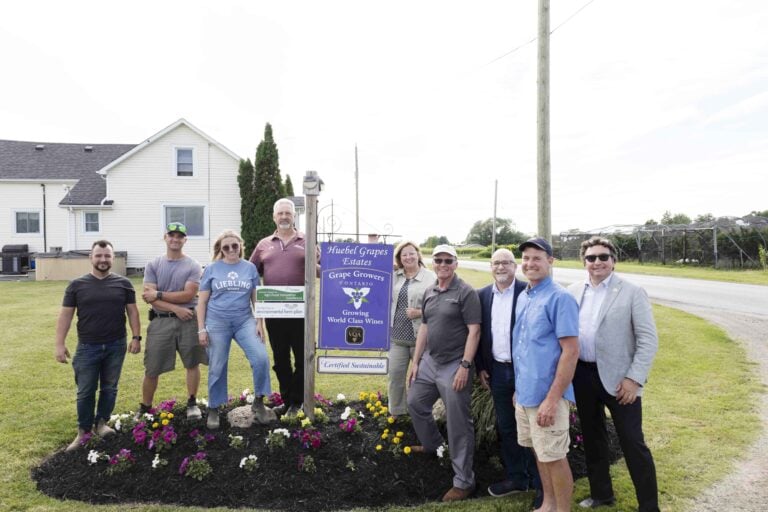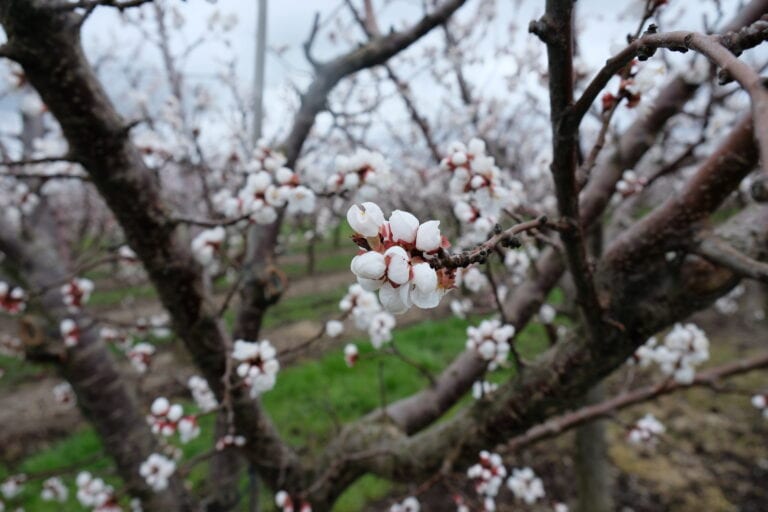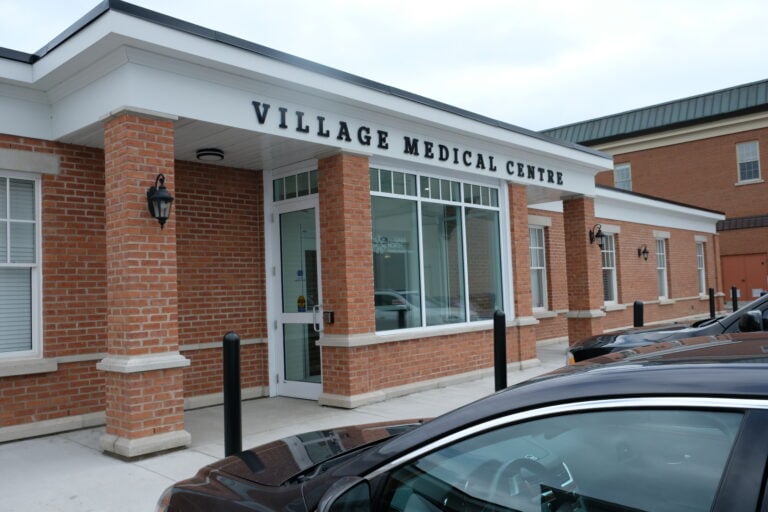Erwin Wiens has big shoulders. A former police officer, turned farmer and now also a town councillor, at six foot five he is no pushover.
In the two weeks since he tossed a figurative grenade about race and inclusion into the debate about changes to Niagara-on-the-Lake's controversial, month-old parks bylaw, he says he has dealt with hate mail, calls to resign and loud criticism from some quarters.
There also have been supportive voices, but the memorable ones seem to be those that call him out.
He's OK with all that; he expected it. And as far as Wiens is concerned, he has nothing to apologize for, because he believes everything he said is true. It was a message he has wanted to deliver for a long time and by that evening at council, he had reached a tipping point.
In some of the strong reactions condemning his words about “very wealthy, very privileged” white people, the deeper, subtler point he was trying to make was lost: Far too many people in society at large and in NOTL in particular, treat differently those whose customs, skin colour or heritage are non-white and less privileged.
Sometimes it is overt and in-your-face, but most often it is quietly polite, quintessentially Canadian.
He’s lived through it with his wife, who is Asian, and their four daughters, who grew up here.
Many folks – especially on social media – will respond with “Suck it up,” “I’ve been through worse,” or “Why is everything about race?” Wiens’ contends times have changed and no one should be treated differently just because of the way they look or the customs the practise.
—————
During that council meeting on April 26, minutes after councillors had heard a detailed presentation about problems of racism, homophobia and lack of inclusion identified in a survey by the town's inclusivity committee, Wiens delivered his emotional and deeply personal condemnation of actions he feels serve, albeit unintentionally, to exclude people.
The parks bylaw – which now bans barbecuing in most parks – and debate about traffic and parking problems around Ryerson Park, a hugely popular site for visitors and locals to view beautiful sunsets, became the lightning rod for his venting.
But really, they were just symbols, examples of how, even with good intentions – trying to fix some obvious traffic problems – the result can be some “unintended, unfortunate consequences.” For Wiens, those decisions ultimately will exclude some people, when that was not the intent.
It was a reminder for Wiens of much more overt sentiments loudly and publicly expressed over the years, notably when Asian investors started buying wineries and investing in Niagara-on-the-Lake.
“I heard a lot from the industry and even on the campaign trail that we have to be careful about Chinese influence in town. That was overt and open. It even came up at a debate.”
“And I never spoke to it and it bothered me at that time that I wouldn't speak up to it,” he says in an extensive interview. But no longer.
These are difficult issues to talk about and painful for many to hear, but he wants to be clear. He's not pointing fingers and saying NOTL residents are inherently racist, but he wants people to recognize and understand the effects of their words and actions. “Unintended consequences.”
—————
His wife Dorothy, “the backbone” of the family’s farming operation, is widely known in town for her community and charity work – and has been acknowledged with numerous awards for her efforts.
She's Asian, born in Brunei, the daughter of Chinese parents who fled their native land. Dorothy arrived in Canada as a young child and grew up in Fort McMurray, Alta., where she was “one of about three Chinese kids in town.” Her dad worked in the oil industry and her mom at a restaurant.
And while she is emphatic that the vast majority of people she encounters – in the community, her church, local organizations – are “wonderful” and kind, she still meets her share of outliers who readily judge a book by its cover. “It always amazes me the number of people that say, ‘Oh you don't have an accent,’ and I say, ‘Well, I came here when I was three. This is my home. I don't know any other home.’ ”
Or it might be someone new working in a NOTL store, seeing a person who looks different than most locals and asking, “Oh, where are you from?” Then acting surprised to find out she's from town. An innocuous question to some, but the message is you’re different and probably not from here. Because of the way you look.
Couple that with the stares and “polite” sideways glances many minorities deal with and a person’s day can be filled with a series of micro-aggressions that Caucasian people don’t endure. Or understand.
This is the lived experience of many people who are not white. Not insidious, but presumptive, because NOTL is not a racially diverse town, no matter how you slice the demographics.
Sometimes it's more in-your-face. “We were at one dinner thing where they talked about how the Asians come in on the buses, and the noises and all that,” Wiens says. When his wife pointed out, “That's me, I'm Asian,” the response was, ” ‘Oh no, that's not you, it's the other ones. And I have good friends who are Chinese’ …”
“Really, is that so?” he adds, laughing at the memory. In other words, you're OK, because we know you.
“My wife and kids shrug it off, because they live with it,” he says. “I can only imagine, because Chinese people are more accepted than Black people. So then, you think, what happens if you're a Black guy living in Niagara-on-the-Lake now. How welcome are you? You already put up with it all the time and it's in your face.” Like migrant workers.
The more you talk to people who are racialized or of mixed race, you find they have learned to cope with the in-your-face confrontations, he says. Tougher to handle is “the subtleness of how they're not welcome.”
The town's inclusivity survey highlighted some of this behaviour and the poor treatment of some seasonal workers, mainly people of colour. And The Lake Report has written about racial incidents in the past.
Wiens notes he hears complaints about the “big, intergenerational families” who often visit NOTL and sometimes end up at picnic tables in area parks. Inevitably, those are usually South Asian families, for whom spending time together is a way of life.
Both he and Dorothy love seeing that.
“It just makes us so happy when we see big families using parks in Niagara-on-the-Lake and there's kids playing and they're barbecuing,” says Dorothy.
“It's a family time and it brings a sense of joy to your heart when you see that. Unfortunately, I think we've gotten away from Sundays of being with family and spending time together.”
Resolving these divisive issues takes a collective approach, though, Wiens says. “I have to point my finger at myself,” he says, noting he's a privileged, white guy – and “white privilege” has always been a phrase that makes him uncomfortable. “But the reality is, I've been blessed beyond what I deserve.”
It's not just about working hard for it – most everyone does, he says. It’s about recognizing you have inherent advantages in life, because you’re white.
He credits the couple's four daughters – now aged 22 to 28 – for his personal evolution. He also believes today's younger generation is far more enlightened about issues of inclusion and ultimately will drive change within society.
—————
Fear and ignorance are at the root of people’s racial reactions, Dorothy says. “They act out of fear of their own lack of knowledge. Some of them don't even realize that they're being discriminatory or racist. They just don't even know.”
During the pandemic, it upsets her to see Asians, especially seniors, targeted for abuse. “But people, out of their own fear, need to blame someone else. Especially during these times of COVID, we need to be so much more gracious to people.”
“It doesn't matter if you're Black, if you're white, you're red, you're yellow, we’re all living through these times together. No one is exempt from this.”
Social media also can be a gathering ground for people to vent about visitors, with some remarking this spring how, “It’s always these types of people who always stop and want to take pictures with the blossoms,” she says.
“If those orchards or vineyards were yours and someone stopped because they were admiring it, would it not make you feel proud?” Dorothy says. “I certainly would be proud of saying, ‘Yeah, it's our orchards’ and not get upset that they're stopping and just admiring the blossoms.”
Her husband echoes that sentiment, noting too often we take our gorgeous surroundings for granted. “We have so much beauty, so many great places in Niagara-on-the-Lake, why can’t we be better at sharing them with others?”
Some argue – especially the keyboard warriors on social media – that minorities should just get over it, “sticks and stones,” or that other immigrant groups experienced the same problems and maybe worse. But the times they are a-changing.
Years ago, when Si Wai Lai and her twin brother Jimmy Lai started buying up properties in NOTL many said, “That was the end” of life as they knew it, Wiens says. “Chinese people are coming, it's terrible. We can't have them. And then the Asian foods came in and they started buying wineries. We can't have them, we can't have them.”
His response? “Why not?” Why can't people of different cultures be welcome?”
Mennonites dealt with similar discrimination in the 1950s, as did Italians and others, Wiens says.
But instead of viewing such abuse almost as a rite of passage, he wants us all to be better.
“We should be using that as an experience, moving forward, not to do it to somebody else. If I hated people doing it to me then, what I should do is stop doing it to other people now.”










